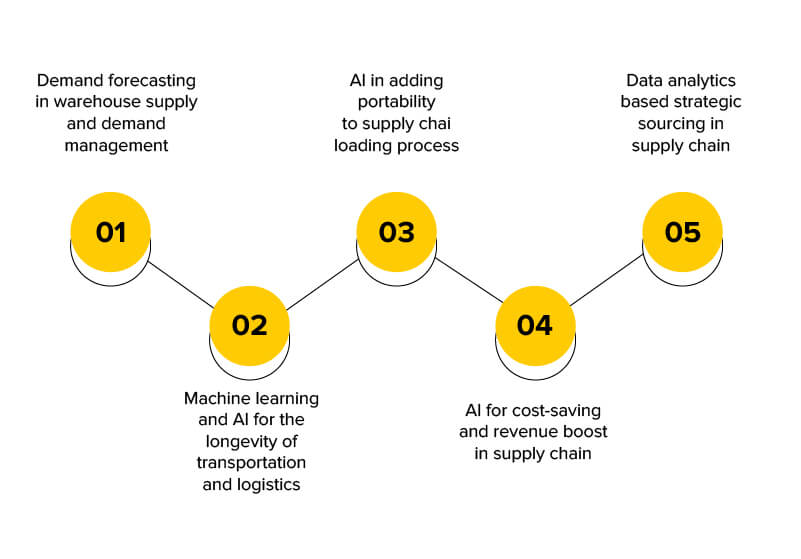
AI Business insights
How AI is Revolutionising Retail Supply Chains for Efficiency & Growth
The retail industry has always been about balancing supply with demand. Enter artificial intelligence (AI), a game-changer for optimising retail supply chains. By analysing massive amounts of data and providing real-time insights, AI helps retailers streamline operations, cut costs, and deliver a better customer experience.
Here’s how adopting AI can transform your supply chain and make it more efficient.
- Forecasting Demand with Pinpoint Accuracy
Gone are the days of relying solely on historical sales data to predict demand. AI enables retailers to analyse a wider range of variables, from weather patterns to social media trends, to understand what customers want and when.
- Real-time insights: AI tools can continuously update demand forecasts, helping you adjust stock levels dynamically.
- Minimising waste: With better predictions, you avoid overstocking slow-moving items or running out of bestsellers.
Ultimately, smarter forecasting reduces the costs of unsold inventory while keeping shelves stocked with the products customers are looking for.
2. Enhancing Inventory Management
Managing inventory can feel like walking a tightrope. AI makes this easier by tracking stock levels, predicting replenishment needs, and even automating ordering processes.
- Optimal stock levels: AI analyses buying patterns to ensure you have just the right amount of inventory at each location.
- Improved visibility: With AI-powered dashboards, you can monitor stock across multiple warehouses and stores in real time.
- Reducing human error: Automating routine tasks reduces mistakes and frees up your team to focus on more strategic activities.
The result? A supply chain that’s more responsive and less prone to costly errors.
3. Streamlining Logistics and Delivery
AI doesn’t just help behind the scenes—it also optimises how products move through the supply chain. From warehouse operations to last-mile delivery, AI makes everything more efficient.
- Route optimisation: AI can map out the fastest, most fuel-efficient delivery routes, reducing costs and improving delivery times.
- Warehouse automation: AI-powered robotics and algorithms can manage picking, packing, and sorting more quickly and accurately than manual processes.
- Predictive maintenance: AI monitors equipment performance, flagging potential issues before they cause downtime.
By fine-tuning logistics, AI ensures that customers receive their orders faster and more reliably.
- Responding to Disruptions Proactively
Supply chains are vulnerable to disruptions—be it a global pandemic, natural disaster, or supplier issue. AI gives retailers the ability to adapt quickly.
- Scenario planning: AI simulations can model the impact of potential disruptions, helping you plan ahead.
- Dynamic adjustments: When unexpected events occur, AI provides real-time recommendations to re-route shipments or source alternative suppliers.
This agility helps you minimise disruption and maintain customer trust during challenging times.
5. Improving Customer Satisfaction
Efficiency isn’t just about cutting costs—it’s also about creating a seamless customer experience. AI helps retailers deliver on customer expectations by ensuring products are available when and where they’re needed.
From faster delivery times to fewer out-of-stock frustrations, AI’s impact on the supply chain ultimately translates to happier customers—and that’s a win for everyone.
The retail landscape is evolving, and supply chain efficiency is more critical than ever. AI isn’t just a buzzword—it’s a practical solution to modern challenges. At CI Group, we’re excited about how AI is shaping the future of retail. Ready to explore what it could do for your business? Let’s have a chat.
